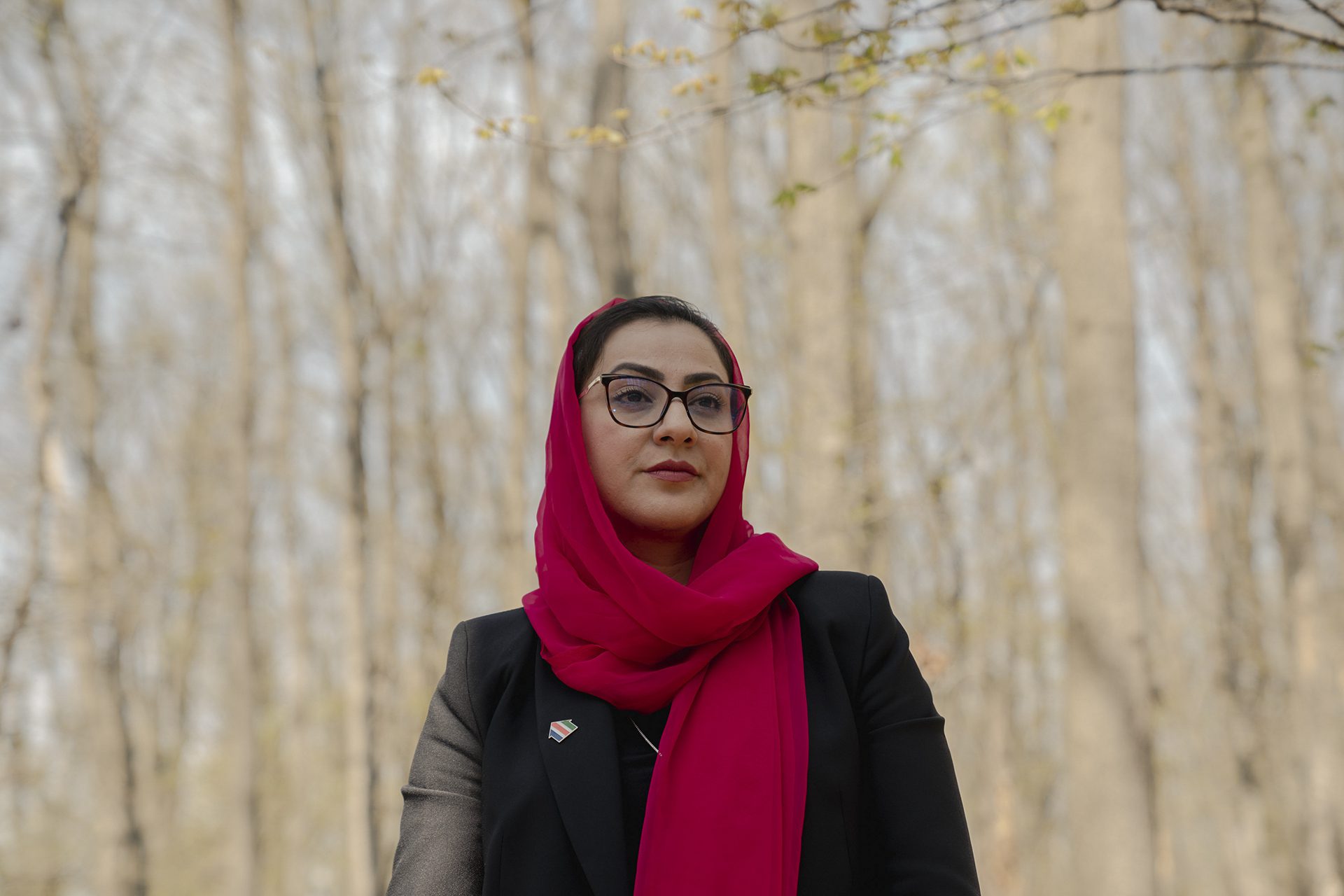 Foto de Shuran Huang para Borderless Magazine
Foto de Shuran Huang para Borderless MagazineNaheed Farid fue elegida a la Cámara de Representantes afgana como uno de sus miembros más jóvenes. Ahora exiliada en Maryland, sigue abogando por las mujeres en Afganistán.
Cuando era niña y crecía en Afganistán, a Naheed Farid se le prohibió ir a la escuela. Su educación quedó en suspenso durante cinco años. Pero como refugiada en Irán, adonde huyeron sus padres y sus tres hermanos durante la guerra civil afgana de los años 90, Farid pudo terminar la escuela primaria. Cuando regresó a Afganistán, su educación sentó las bases para que se convirtiera en una de las legisladoras más jóvenes del Parlamento afgano y en Presidenta de la Comisión de Derechos Humanos, Sociedad Civil y Asuntos de la Mujer.
Noticias que ponen el poder en el punto de mira y a las comunidades en el centro.
Suscríbase a nuestro boletín gratuito y reciba actualizaciones dos veces por semana.
En la actualidad, Farid tiene una buena formación. Tiene un máster en gestión política por la Universidad George Washington y un doctorado honoris causa por la Universidad de Kent en Canterbury. Durante más de una década ha trabajado como legisladora, centrándose en el fortalecimiento de los derechos de la mujer en Afganistán. Representó a su ciudad natal, la provincia de Herat, conocida entre los afganos como la ciudad de la poesía y la literatura.
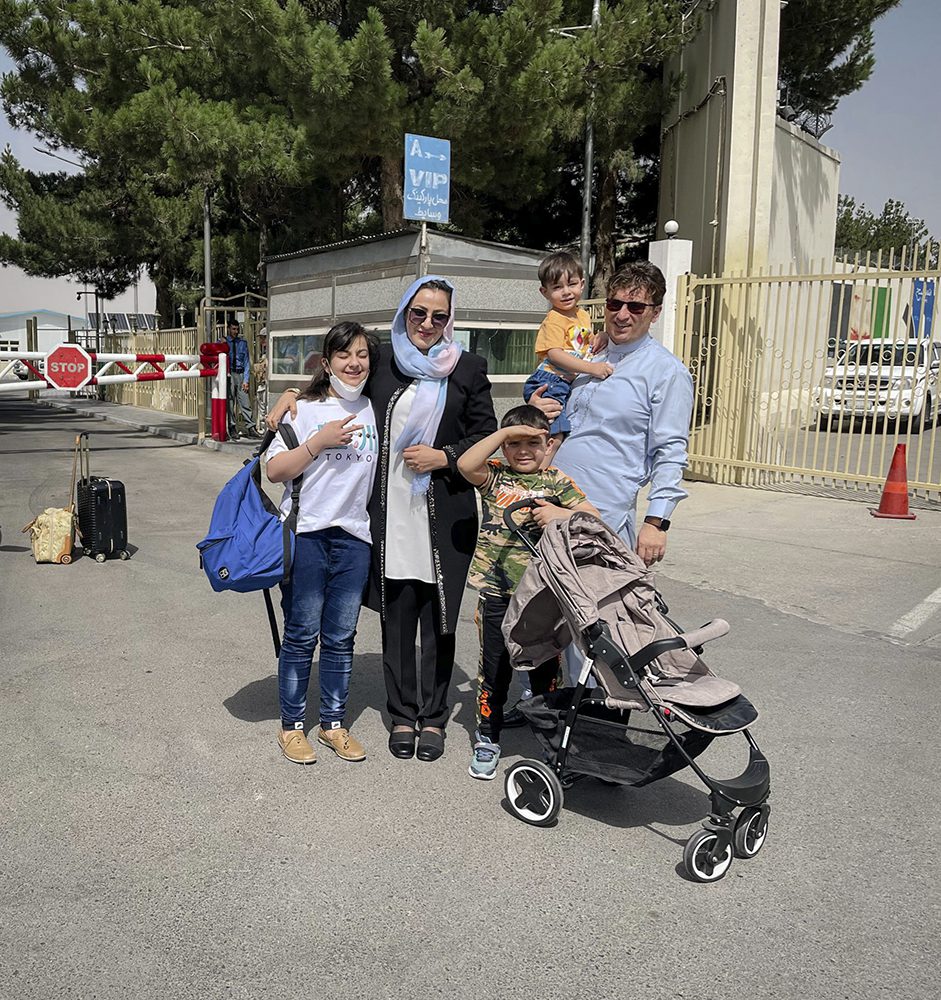
Desde el colapso del gobierno afgano y la toma del poder por los talibanes en 2021, Farid vive en Maryland con sus tres hijos y su marido. Ahora es becaria de la Escuela de Asuntos Públicos e Internacionales de la Universidad de Princeton en su Laboratorio de Políticas sobre Afganistán, donde investiga políticas y ofrece recomendaciones que abordan las crisis actuales en Afganistán. Además, Farid forma parte de la junta del Consejo para la Paz y la Prosperidad Democráticas entre Afganistán y Estados Unidos y colabora como voluntaria con organizaciones que reasientan a afganos en Estados Unidos.
Borderless habló con Farid sobre su lucha por convertirse en legisladora y su trabajo actual.
Mis padres querían que sus hijos vivieran en paz y recibieran una educación, y por eso escaparon de la guerra. De niño quería ser periodista. Un día mi madre y yo estábamos viendo a un político en la tele y le dije: "Tú querías ser periodista, pero no pudiste. Ahora yo quiero ser periodista". Mi madre me miró y me dijo: "¡No! Ahora quiero que te hagas político y que un día, como este político, aparezcas en la tele con todos los periodistas y respondas sabiamente a las preguntas que te hagan los periodistas". Después de aquel día, me sentí motivado para convertirme en político.
Cuando tenía 13 años, mi familia decidió repatriarse a Afganistán porque la guerra civil se había calmado. Un día después de nuestra llegada a Herat, en septiembre de 1995, los talibanes tomaron rápidamente la provincia. Como estudiante de secundaria, me prohibieron ir a la escuela. Como miles de niñas afganas, estaba encerrada en casa, sin poder salir sin burka y escolta masculina. Ojeaba mis libros todos los días, esperando a que volvieran a abrir las puertas de la escuela. Pero esta espera duró cinco años.
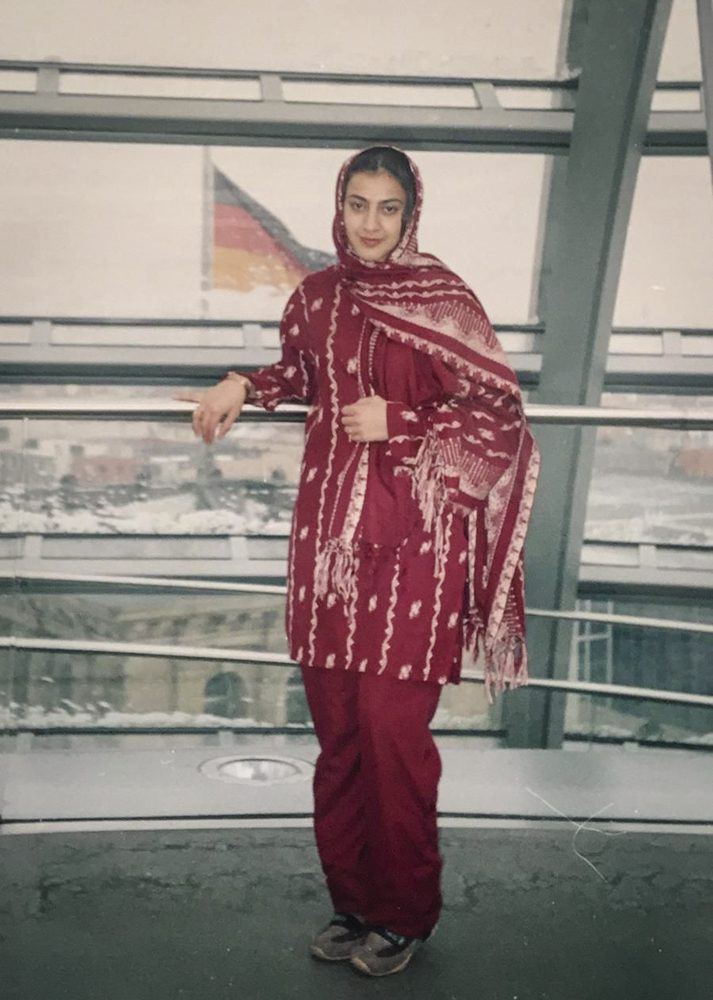
En 2001, cuando las fuerzas internacionales lideradas por Estados Unidos entraron en Kabul, volvieron a abrirse las puertas de las escuelas y universidades, y reanudé mis estudios. Tras la caída del régimen talibán, formé parte del primer grupo de chicas afganas que visitó Alemania para participar en un programa de formación de líderes. Cada vez estaba más motivada para convertirme en política. Cada vez que leía sobre mujeres líderes, me sentía orgullosa y animada a entrar en política. Tras graduarme en el instituto, con la orientación de mi madre, elegí estudiar Derecho y Ciencias Políticas. Tenía 23 años cuando me casé con mi marido, Tariq Farid, y vinimos a Estados Unidos, donde obtuve un máster en gestión política por la Universidad George Washington.
En 2010, con el asesoramiento y el apoyo de mi marido y mi familia, participé en la política afgana. Herat es una provincia tradicional de Afganistán. La mayoría de las familias no estaban muy interesadas en la presencia de las mujeres en la política. Pero la familia de mi marido me apoyó más de lo que esperaba. Mi suegro es médico. Cuando atendía a sus pacientes, les decía: "No paguen mi consulta, pero voten en su lugar a la novia de mi hijo, Naheed Farid". Este apoyo de mi suegro fue muy valioso para mí.
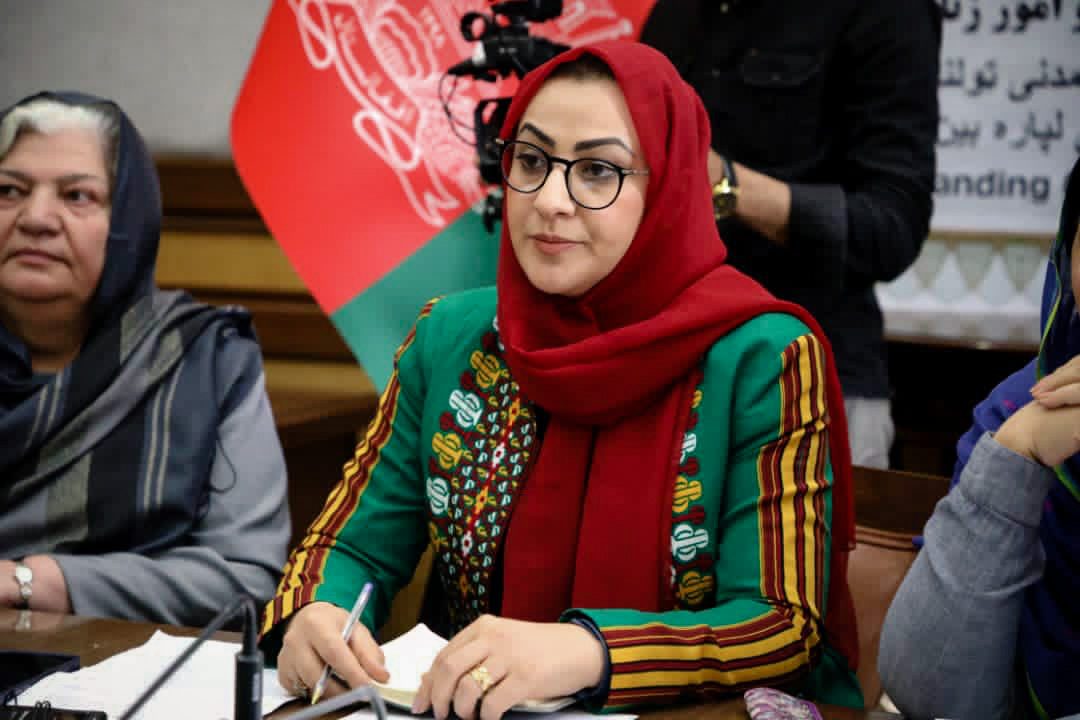
Fui uno de los miembros más jóvenes de la Cámara de Representantes afgana. Con la fuerza de mi juventud y el amor por mi país, me sentí más motivada para trabajar por la gente, especialmente por las mujeres. Durante mi primer mandato, trabajé duro para aprobar la ley de Eliminación de la Violencia contra la Mujer. Por desgracia, debido a la oposición de algunos representantes extremistas y contrarios a las mujeres, la ley no fue aprobada por el Parlamento. Pero más tarde fue promulgada por el gobierno de Afganistán en un decreto legislativo para proteger los derechos y la dignidad de las mujeres afganas. Tras años de guerra y penurias, creo que la aplicación de esta ley es un gran logro en un país como Afganistán, donde proliferan las desigualdades sociales, las tradiciones desagradables y misóginas, la ignorancia y el analfabetismo, y los desafíos religiosos.
Mi familia me animó a presentarme a un segundo mandato, y me convertí en miembro del Parlamento afgano por segunda vez. También fui presidenta de la Comisión de Derechos Humanos, Sociedad Civil y Asuntos de la Mujer del Parlamento afgano.
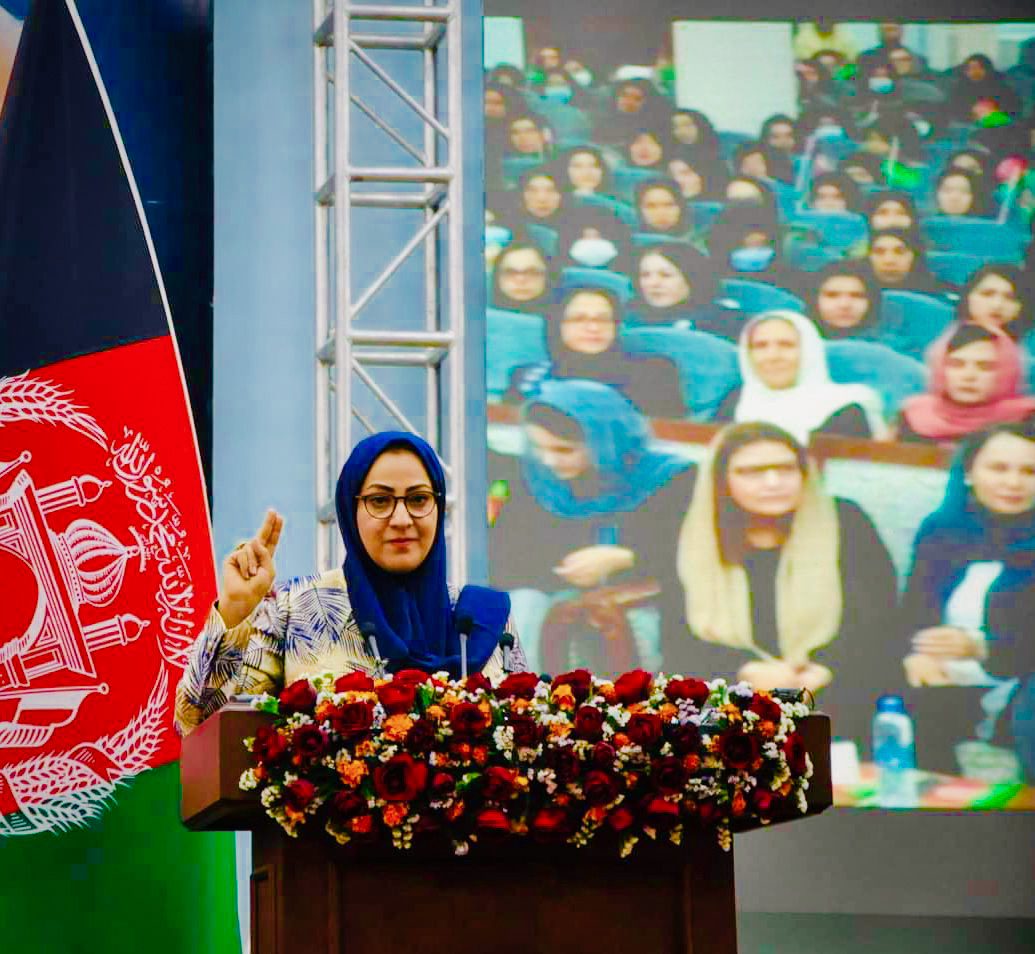
Como parlamentario, era consciente de los fallos de seguridad. Pero nunca imaginé que el gobierno afgano se derrumbaría tan fácilmente. Esta caída me resulta incluso increíble.
Para mí, la caída del gobierno afgano significa la caída de una nación y la caída de varias generaciones. Es muy doloroso y miserable. En pocos días, los logros de nuestras dos décadas se han convertido en polvo y humo.
Más información
Unos días antes de la caída de Kabul, fui con oficiales militares a los bastiones de las fuerzas de seguridad y los elogié. Pensé que la situación podría mejorar. Pero, por desgracia, la situación de seguridad empeoraba cada día. Herat cayó en manos de los talibanes antes del colapso de Kabul. Tuve que refugiarme en Irán con mis tres hijos. Esperaba que la situación mejorara y volver a mi país. Pero en un día, los talibanes se hicieron con todo el gobierno. Tras la caída de Kabul, mis hijos y yo huimos de Irán a Estados Unidos.
Cada vez que veo las imágenes de la huida y de la juventud apagada de mi país, me pongo a llorar. Todas las células de mi cuerpo arden. He crecido profesionalmente durante los últimos 20 años, al igual que otros miles de jóvenes. Estábamos poniendo los ladrillos de nuestros sueños y aspiraciones para construir el futuro y servir a nuestro país. Pero en un abrir y cerrar de ojos, todo se destruyó y volvimos al punto cero.
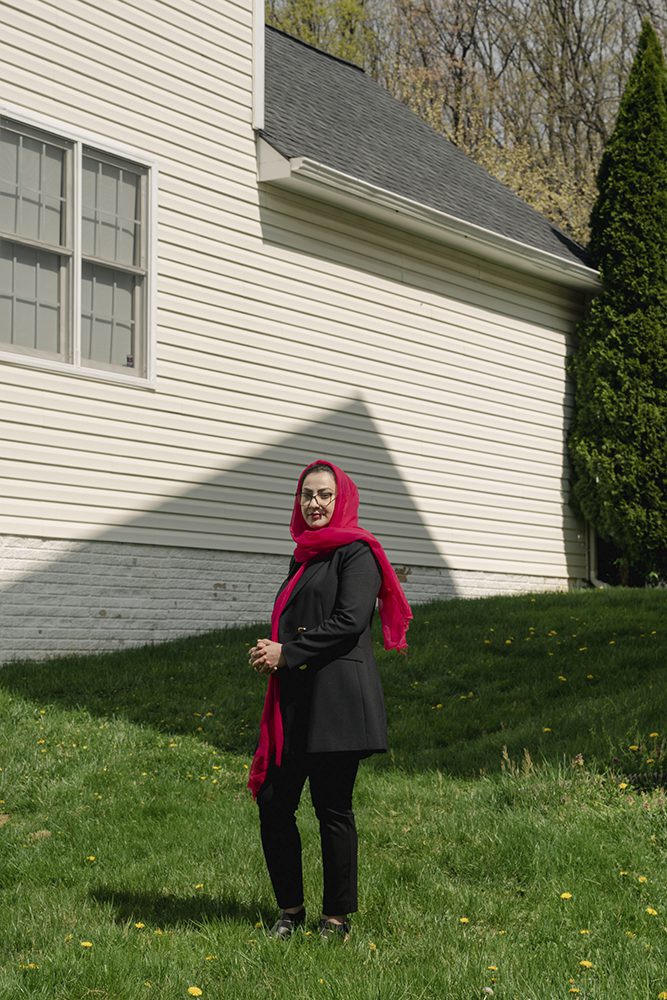
No tengo ningún problema en quedarme en Estados Unidos. Pero aún así me siento sin hogar. Crecí en Afganistán, estudié y finalmente fui diputado. Y lo que es más importante, tenía grandes aspiraciones de servir a mi país. En mi opinión, la patria de una persona es como su identidad. La vida no tiene sentido cuando te arrebatan tu identidad. Me encantaría volver a Afganistán, si la seguridad de mi vida y la de mis hijos están garantizadas.
Sigo en contacto diario con la gente de Afganistán y trato de atender sus preocupaciones. La situación es realmente deplorable. Casi 40 millones de personas han sido tomadas como rehenes por un grupo terrorista. La matanza de minorías étnicas, especialmente el genocidio de los hazaras, es prácticamente continua.
Recientemente mantuve una reunión con varios miembros del Congreso de Estados Unidos y les pedí que prestaran atención a la situación en Afganistán porque allí operan 22 grupos terroristas, entre ellos la red Haqqani. La continuación de sus actividades y la expansión de sus programas no sólo serán una amenaza para Afganistán, sino también para la seguridad mundial. En mi opinión, si el mundo no presta atención a la situación en Afganistán y no se toma en serio el destino de Afganistán, el 11-S puede volver a repetirse.
Esta serie ha sido posible gracias al apoyo del Crossroads Fund y PEN America. Esta serie está disponible en inglés, español y persa dari. Para solicitar su reedición, envíe un correo electrónico a [email protected].

